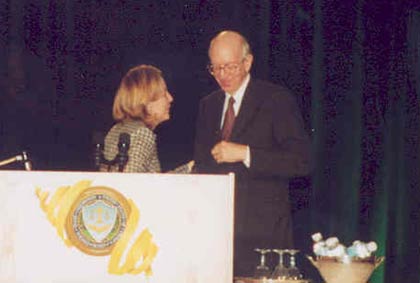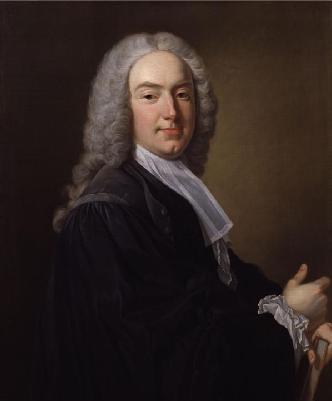|
Nonhuman Rights Project
The Nonhuman Rights Project (NhRP) is an American nonprofit animal rights organization seeking to change the legal status of at least some nonhuman animals from that of property to that of persons, with a goal of securing rights to bodily liberty (the right not to be imprisoned) and bodily integrity (the right not to be experimented on). The NhRP works largely through state-by-state litigation in what it determines to be the most appropriate common law jurisdictions and bases its arguments on existing scientific evidence concerning self-awareness and autonomy in nonhuman animals. Its sustained strategic litigation campaign has been developed primarily by a team of attorneys, legal experts, and volunteer law students who have conducted extensive research into relevant legal precedents. The NhRP filed its first lawsuits in December 2013 on behalf of four chimpanzees held in captivity in New York State. In late 2014, NhRP President Steven Wise and Executive Director Natalie Prosin a ... [...More Info...] [...Related Items...] OR: [Wikipedia] [Google] [Baidu] |
Nonhuman Rights Project Logo
Non-human (also spelled nonhuman) is any entity displaying some, but not enough, human characteristics to be considered a human. The term has been used in a variety of contexts and may refer to objects that have been developed with human intelligence, such as robots or vehicles. Animal rights and personhood In the animal rights movement, it is common to distinguish between "Personhood#Humans, human animals" and "non-human animals". Participants in the animal rights movement generally recognize that non-human animals have some similar characteristics to those of human personhood, persons. For example, various non-human animals have been shown to register pain, compassion, memory, and some Animal cognition, cognitive function. Some animal rights activists argue that the similarities between human and non-human animals justify giving non-human animals rights that human society has afforded to humans, such as the right to self-preservation, and some even wish for all non-human animals ... [...More Info...] [...Related Items...] OR: [Wikipedia] [Google] [Baidu] |
Great Apes
The Hominidae (), whose members are known as the great apes or hominids (), are a taxonomic family of primates that includes eight extant species in four genera: '' Pongo'' (the Bornean, Sumatran and Tapanuli orangutan); ''Gorilla'' (the eastern and western gorilla); '' Pan'' (the chimpanzee and the bonobo); and ''Homo'', of which only modern humans remain. Several revisions in classifying the great apes have caused the use of the term ''"hominid"'' to vary over time. The original meaning of "hominid" referred only to humans (''Homo'') and their closest extinct relatives. However, by the 1990s humans, apes, and their ancestors were considered to be "hominids". The earlier restrictive meaning has now been largely assumed by the term ''"hominin"'', which comprises all members of the human clade after the split from the chimpanzees (''Pan''). The current meaning of "hominid" includes all the great apes including humans. Usage still varies, however, and some scientists and layper ... [...More Info...] [...Related Items...] OR: [Wikipedia] [Google] [Baidu] |
Hercules And Leo Habeas Corpus Order
Hercules (, ) is the Roman equivalent of the Greek divine hero Heracles, son of Jupiter and the mortal Alcmena. In classical mythology, Hercules is famous for his strength and for his numerous far-ranging adventures. The Romans adapted the Greek hero's iconography and myths for their literature and art under the name ''Hercules''. In later Western art and literature and in popular culture, ''Hercules'' is more commonly used than ''Heracles'' as the name of the hero. Hercules is a multifaceted figure with contradictory characteristics, which enabled later artists and writers to pick and choose how to represent him. This article provides an introduction to representations of Hercules in the later tradition. Mythology Birth and early life In Roman mythology, although Hercules was seen as the champion of the weak and a great protector, his personal problems started at birth. Juno sent two witches to prevent the birth, but they were tricked by one of Alcmene's servants and sent ... [...More Info...] [...Related Items...] OR: [Wikipedia] [Google] [Baidu] |
Precedent
A precedent is a principle or rule established in a previous legal case that is either binding on or persuasive for a court or other tribunal when deciding subsequent cases with similar issues or facts. Common-law legal systems place great value on deciding cases according to consistent principled rules, so that similar facts will yield similar and predictable outcomes, and observance of precedent is the mechanism by which that goal is attained. The principle by which judges are bound to precedents is known as ''stare decisis'' (a Latin phrase with the literal meaning of "to stand in the-things-that-have-been-decided"). Common-law precedent is a third kind of law, on equal footing with statutory law (that is, statutes and codes enacted by legislative bodies) and subordinate legislation (that is, regulations promulgated by executive branch agencies, in the form of delegated legislation) in UK parlance – or regulatory law (in US parlance). Case law, in common-law jurisdictions, ... [...More Info...] [...Related Items...] OR: [Wikipedia] [Google] [Baidu] |
Habeas Corpus
''Habeas corpus'' (; from Medieval Latin, ) is a recourse in law through which a person can report an unlawful detention or imprisonment to a court and request that the court order the custodian of the person, usually a prison official, to bring the prisoner to court, to determine whether the detention is lawful. The writ of ''habeas corpus'' was described in the eighteenth century by William Blackstone as a "great and efficacious writ in all manner of illegal confinement". It is a summons with the force of a court order; it is addressed to the custodian (a prison official, for example) and demands that a prisoner be brought before the court, and that the custodian present proof of authority, allowing the court to determine whether the custodian has lawful authority to detain the prisoner. If the custodian is acting beyond their authority, then the prisoner must be released. Any prisoner, or another person acting on their behalf, may petition the court, or a judge, for a ... [...More Info...] [...Related Items...] OR: [Wikipedia] [Google] [Baidu] |
Animal Welfare
Animal welfare is the well-being of non-human animals. Formal standards of animal welfare vary between contexts, but are debated mostly by animal welfare groups, legislators, and academics. Animal welfare science uses measures such as longevity, disease, immunosuppression, behavior, physiology, and reproduction, although there is debate about which of these best indicate animal welfare. Respect for animal welfare is often based on the belief that nonhuman animals are sentient and that consideration should be given to their well-being or suffering, especially when they are under the care of humans. These concerns can include how animals are slaughtered for food, how they are used in scientific research, how they are kept (as pets, in zoos, farms, circuses, etc.), and how human activities affect the welfare and survival of wild species. There are two forms of criticism of the concept of animal welfare, coming from diametrically opposite positions. One view, held by some think ... [...More Info...] [...Related Items...] OR: [Wikipedia] [Google] [Baidu] |
Richard Posner
Richard Allen Posner (; born January 11, 1939) is an American jurist and legal scholar who served as a federal appellate judge on the U.S. Court of Appeals for the Seventh Circuit from 1981 to 2017. A senior lecturer at the University of Chicago Law School, Posner is a leading figure in the field of law and economics, and was identified by ''The Journal of Legal Studies'' as the most-cited legal scholar of the 20th century. He is widely considered to be one of the most influential legal scholars in the United States. Posner is known for his scholarly range and for writing on topics outside of his primary field, law. In his various writings and books, he has addressed animal rights, feminism, drug prohibition, same-sex marriage, Keynesian economics, and academic moral philosophy, among other subjects. Posner is the author of nearly 40 books on jurisprudence, economics, and several other topics, including ''Economic Analysis of Law'', ''The Economics of Justice'', ''The Problem ... [...More Info...] [...Related Items...] OR: [Wikipedia] [Google] [Baidu] |
The New York Times Magazine
''The New York Times Magazine'' is an American Sunday magazine Supplement (publishing), supplement included with the Sunday edition of ''The New York Times''. It features articles longer than those typically in the newspaper and has attracted many notable contributors. The magazine is noted for its photography, especially relating to fashion and style. Its puzzles have been popular since their introduction. History Its first issue was published on September 6, 1896, and contained the first photographs ever printed in the newspaper.The New York Times CompanyNew York Times Timeline 1881-1910. Retrieved on 2009-03-13. In the early decades, it was a section of the broadsheet paper and not an insert as it is today. The creation of a "serious" Sunday magazine was part of a massive overhaul of the newspaper instigated that year by its new owner, Adolph Ochs, who also banned fiction, comic strips and gossip columns from the paper, and is generally credited with saving ''The New York Times ... [...More Info...] [...Related Items...] OR: [Wikipedia] [Google] [Baidu] |
Charles Siebert
Charles Alan Siebert (March 9, 1938 – May 1, 2022) was an American actor and television director. As an actor, he is probably best known for his role as Dr. Stanley Riverside II on the television series ''Trapper John, M.D.'', a role he portrayed from 1979 to 1986, and for his numerous appearances on the $25,000 Pyramid. After 1986, although he continued working as an actor, Siebert's career was focused on working as a director for episodic television for such shows as '' Xena: Warrior Princess'', and ''Hercules: The Legendary Journeys''. Early life and education Siebert was born in Kenosha, Wisconsin. He studied acting at Marquette University and the London Academy of Music and Dramatic Art (LAMDA). Career He began his career appearing in regional theatre productions throughout the United States during the 1960s with such companies as Shakespeare in the Park in New York City, the Lincoln Center Repertory Company, the American Shakespeare Festival in Stratford, Connecticut, ... [...More Info...] [...Related Items...] OR: [Wikipedia] [Google] [Baidu] |
James Somerset
James Somerset ( – after 1772) was an African man and the plaintiff in a pivotal court case that confirmed that slavery was not legal in England and Wales. Biography Somerset was born in West Africa around 1741. He was captured when he was about 8 years old, sold to European slave traders, and transported to the Colony of Virginia where Scottish merchant Charles Stewart bought the child. In 1764, Somerset was taken to Boston, where Stewart had been appointed Receiver General of Customs. In November 1769, Stewart moved to England, taking Somerset along to serve him in his residence in London. In London, Somerset was baptised on 10 February 1771 at the Church of St Andrew, Holborn, with Thomas Walkin, Elizabeth Cade and John Marlow acting as his godparents. Perhaps because baptism was often associated with manumission, Somerset refused to continue serving Stewart and left him. Somerset evidently lived in freedom for several months, but in November 1771 he was kidnapped and forced ... [...More Info...] [...Related Items...] OR: [Wikipedia] [Google] [Baidu] |
William Murray, 1st Earl Of Mansfield
William Murray, 1st Earl of Mansfield, PC, SL (2 March 170520 March 1793) was a British barrister, politician and judge noted for his reform of English law. Born to Scottish nobility, he was educated in Perth, Scotland, before moving to London at the age of 13 to take up a place at Westminster School. He was accepted into Christ Church, Oxford, in May 1723, and graduated four years later. Returning to London from Oxford, he was called to the Bar by Lincoln's Inn on 23 November 1730, and quickly gained a reputation as an excellent barrister. He became involved in politics in 1742, beginning with his election as a Member of Parliament for Boroughbridge, now in North Yorkshire, and appointment as Solicitor General. In the absence of a strong Attorney General, he became the main spokesman for the government in the House of Commons, and was noted for his "great powers of eloquence" and described as "beyond comparison the best speaker" in the House of Commons. With the promotion o ... [...More Info...] [...Related Items...] OR: [Wikipedia] [Google] [Baidu] |
Somerset V Stewart
''Somerset v Stewart'' (177298 ER 499(also known as ''Somersett's case'', ''v. XX Sommersett v Steuart and the Mansfield Judgment)'' is a judgment of the English Court of King's Bench in 1772, relating to the right of an enslaved person on English soil not to be forcibly removed from the country and sent to Jamaica for sale. Lord Mansfield decided that: Slavery had never been authorized by statute within England and Wales, and Lord Mansfield found it also to be unsupported within England by the common law, although he made no comment on the position in the overseas territories of the British Empire. The case was closely followed throughout the Empire, particularly in the Thirteen American Colonies. Scholars have disagreed over precisely what legal precedent the case set. Facts James Somerset, an enslaved African, was purchased by Charles Stewart (or Steuart), a customs officer when he was in Boston, Province of Massachusetts Bay, a British crown colony in North America. ... [...More Info...] [...Related Items...] OR: [Wikipedia] [Google] [Baidu] |





